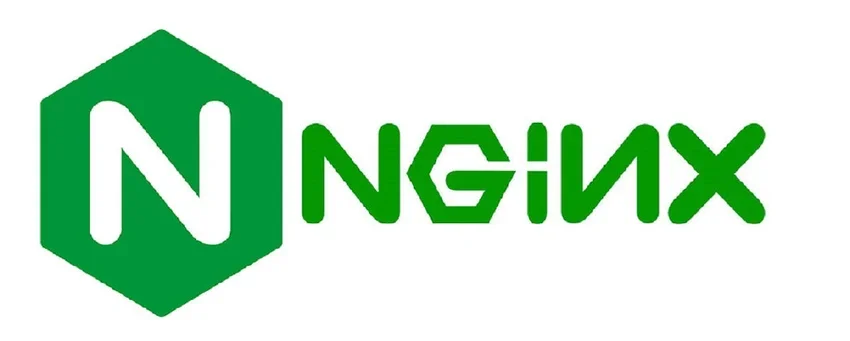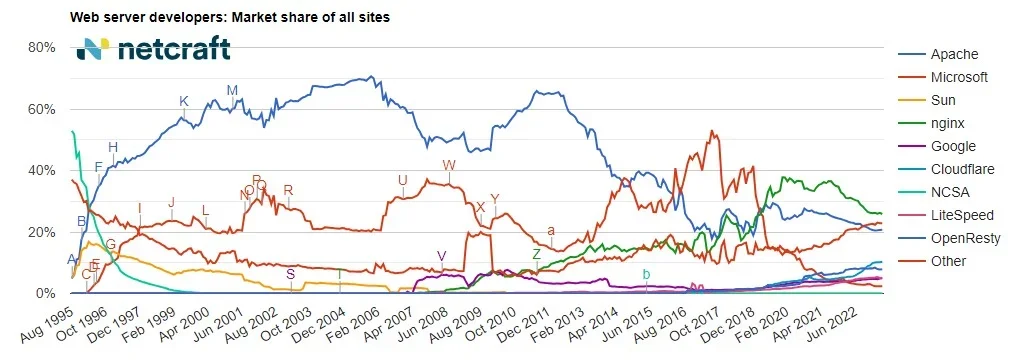Freenginx is a fork of the most popular web server at the moment, Nginx. What it can do and how much it's worth.

Freenginx is a new fork of Nginx, the open one code web server, which at the time of writing powers a third of all websites.
Its name consists of the words Free and Nginx and such says Nginx lead developer Maxim Dounin (Maxim Dunin) who created it, aims to recapture the spirit of open source development "for the common good", without corporate control.
But, let's start things from the beginning...
What is Nginx?

Nginx (from “Engine x”) is a web server software, free and open source, released in 2004. It is easily configurable and has also found presence as a proxy server.
Nginx Server supports installation on many of the well-known server operating systems such as Linux Server, Windows Server and Mac Server.

Nginx has slowly grown in popularity, surpassing its longtime open-source competitor, Apache, and Microsoft's proprietary IIS in 2019, according to Netcraft data.
What is Freenginx?

On February 14, former Nginx developer Maxim Dounin announced Freenginx as a fork of Nginx. Maxim took this action in protest of decisions made by F5, the company that currently owns Nginx. He wrote about it:
I no longer see nginx as a free and open source project, developed and maintained for the common good. Some new, non-technical staff at F5 recently decided they know better how to run open source projects.
Specifically, they decided to interfere with the security policy that has been using Nginx for years, ignoring both the policy and the developers' position.
They own the project and can do anything with it, including performing marketing-motivated actions, ignoring the niche and community of its developers.And, most importantly, I can no longer control what changes are made to nginx through F5, and I no longer see nginx as a free and open source project developed and maintained for the common good.
It was not so much the specific issue, however, as the attitude of F5, as he explained in another note.
Dounin stopped working as an employee of F5 since the company left Russia, in 2022, due to its invasion of Ukraine. He remained an important volunteer, contributor of late two years in NginX development.

Freenginx was preceded by another fork of NginX, Angie. And it's open source, created by Russian Nginx developers when F5 moved from Moscow. Angie belongs to the Russian Web Server company, and Dounin worries that any for-profit company can interfere with the proper development and maintenance of an open source application.
The background to this development is complex, involving geopolitical tensions, corporate takeovers, and inherent challenges of balancing commercial interests, combined with the ethos of open source.
The history of Nginx has been tumultuous. THE acquisition of Ngnix by F5 in 2019, was seen as a new capital that would bring economic stability and growth. However, the following raid on Nginx offices in Moscow by Russian state agents, on behalf of the Russian web company Rambler, who claimed to own the Nginx code, left the company in turmoil.
The closure of F5's offices in Moscow added more complexity to this whole scene.
The first version of it Freenginx (1.25.4) released on February 20, 2024, with few bug fixes to address memory access related defects. Such flaws are common security holes that can allow malicious actors to attack websites.
Freenginx vs Nginx

After just one revision, Freenginx is almost no different from its ancestor. After all, this happens in all forks. As time goes on, a fork will slowly diverge from its original software as projects take different paths.
Freenginx's stated goal is to focus more on security-related improvements and be developer-driven, rather than driven by decisions coming from the management level.
For now any migration will be less of a replacement of a similar web server, since Freenginx is still maturing.
On the other hand if you like the philosophy of Freenginx or want to support the developer's goals, now is the time to switch so you don't have a lot of setup to do.
What other web servers are available?

Apache is still the main alternative to Nginx, especially in open source ecosystems where it is installed by default or is easy to configure. These two web servers currently dominate the market share.
However, the statistics data of market share on web servers disagree with each other as they come from different polling sources.
There are also the smaller players, such as OpenResty (another site-specific Nginx variant that hosts Lua applications), or Google's GWS. The latter is used exclusively by Google, but has a visible market share due to the number of sites produced by Google itself.



